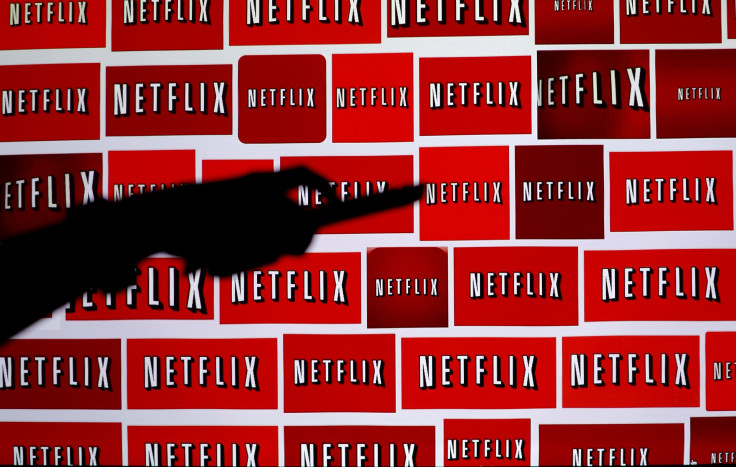Netflix Wins Big With Unscripted Shows As It Seeks To Diversify Content

Netflix (NASDAQ:NFLX) has discovered a new moneymaker in the past year: unscripted shows.
Unscripted shows are exactly that — they have no set dialogue, so they play out like reality TV shows. In 2017, Netflix released 20 unscripted shows. And the surprisingly positive response to those first unscripted titles, also referred to as "nonfiction" shows, has prompted Netflix to make them more of a priority. Just in June, Netflix ordered three new unscripted series.
This article originally appeared in the Motley Fool.
Investors should be happy to see that Netflix is continuing to brainstorm new ideas to keep its subscribers interested, particularly as the space is about to get more competitive with Disney (NYSE:DIS) and other players entering the content streaming mix in 2019.
Netflix finds easy success with its new format
Netflix's non-fiction offerings have delighted its viewers this past year. The clearest example is the rebooted reality show “Queer Eye,” which was recently nominated for four Emmy awards. The show has become a phenomenon, launching the core "Fab 5" cast into superstardom.
“Queer Eye” was just renewed for a second season, along with four other successful Netflix unscripted series, including “Dope, Drug Lords, Nailed It!” and “The Toys That Made Us.” Netflix has even started producing unscripted original shows outside of the U.S., such as “Busted!” in Korea and “Terrace House” in Japan. These simple but fun reality shows are an economical way for Netflix to grow its brand both at home and abroad.
Netflix first decided to start producing its own unscripted shows when it realized that unscripted networks would probably eventually decide to create their own streaming sites to house their own content, Netflix Chief Content Officer (CCO) Ted Sarandos said on the company's latest earnings call. He noted that Netflix was pleasantly surprised to see that a number of the non-fiction titles have built up enthusiastic audiences surprisingly fast. And because these types of shows take less time and money to bring to market, they're well worth the effort.
This is the same reason that Netflix first began to form its original content strategy back in 2013 starting with the hit show House of Cards . Even back then, Netflix was starting to get nervous that networks would soon feel they were missing out on potential revenue by not creating their own streaming sites. And with Disney's platform launching sometime in 2019, it seems Netflix dived into a new vein of programming just in time.
Netflix under pressure to reinvent amid competition
Netflix has been under increased pressure to diversify its content lineup in order to keep its viewers engaged amid the rising competition. This will be especially true over the next year as Disney, Apple, and Amazon start to release more expensive, higher-quality original programming.
Apart from unscripted shows, Netflix has recently released original anime shows to appeal to its viewers in Asia, particularly Japan. Jumping into new specialty formatted shows like anime that appeal to specific local audiences is a risk. However, Netflix knows it has to stay at the forefront of original programming to stay on top in the streaming space. And Netflix has never been shy about spending money on new programming. In 2018 alone, Netflix plans to spend $8 billion on content.
Netflix may have started its original content strategy with the classic drama series "House of Cards," but in the past five years the company has managed to diversify into scripted, unscripted, comedy, drama, talk shows, stand-up, and anime. And in spite of the high volume of shows, Netflix has managed to keep up their quality. The company had 40 different shows that were nominated for an award at this year's Emmys.
And while Netflix is mainly known for its original series, it's also working on producing more original movies in the near future. Most recently, Netflix released two smash-hit summer romantic comedies, “Kissing Booth” and “Set It Up.” Sarandos said that Netflix wants to make fun romantic comedies that aren't big productions, but it also wants to do bigger films with high-profile directors. He predicts that Netflix's original movies will eventually be as successful as its original series have been in terms of viewership, but cautions that it will take a few more years to reach that level.
Netflix knows that competition is coming. However, it will be difficult for competitors to overcome the huge head start Netflix has had in the streaming space. Netflix has already mastered the original TV series format and is now moving into riskier waters that could pay off in the coming years when platforms are fighting for subscribers. By diversifying its content, Netflix is broadening its reach and appeal. And that's something that the other incoming players will have to work up to on their own time.
John Mackey, CEO of Whole Foods Market, an Amazon subsidiary, is a member of The Motley Fool’s board of directors. Natalie Walters has no position in any of the stocks mentioned. The Motley Fool owns shares of and recommends Amazon, Apple, Netflix, and Walt Disney. The Motley Fool has the following options: long January 2020 $150 calls on Apple and short January 2020 $155 calls on Apple. The Motley Fool has a disclosure policy.





















